Dramatic images show how coral reefs may become a reality on Welsh beaches
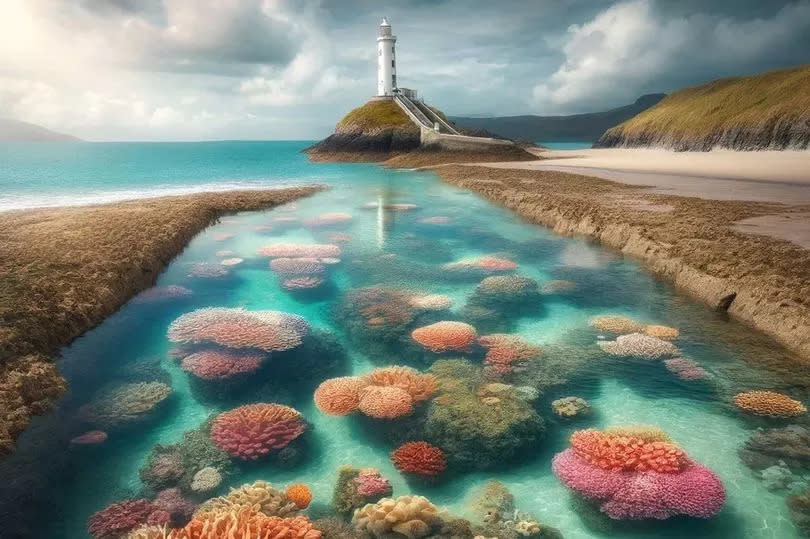
Coral reefs are vibrant, teeming with life and, sadly, under threat. With Australia’s iconic Great Barrier Reef currently suffering its fifth mass bleaching event in eight years, attention has turned to global restoration projects aiming to preserve them.
As the world’s sea temperatures continue to rise, once temperate waters may one day have a role to play in the conservation of tropical coral reefs, some scientists believe. It might sound far-fetched but it’s been speculated that coastal waters off Wales could in future become “breeding grounds” for replacement reefs.
Ocean Science and Technology (OST), a global information hub for the marine and offshore sector, has examined some of the world’s most prominent rescue efforts currently underway. With technology being developed to create and replant coral reefs, it said that, in decades to come, there was a “distinct possibility” the UK could host reef nurseries if current warming trends continue.
READ MORE: Welsh Government to reopen island lorry park whose closure was described as 'advancement into chaos'
READ MORE: Body found in Welsh river identified as missing man who vanished on his birthday
To illustrate the point, OST undertook a theoretical exercise to show how parts of the Welsh coastline might look if coral farming was ever to take place. It used AI to develop images of coastal hotspots in Anglesey, Gwynedd, Ceredigion and Pembrokeshire as they might look in 2074.
Current reef conservation projects range from cultivating climate-resilient corals to developing seaweed farms that can capture carbon and mitigate ocean acidification. Australia is a hotbed of research, with innovations including a “RangerBot” that roams reefs to neutralise threats without damaging surrounding habitats.
Another is the Modular Artificial Reef Structure (MARS), developed in Melbourne. This system aids coral transplantation through the use of modular ceramic components, a material that mimics natural reef formation. Already the MARS system has been proven in deep-water environments in the Maldives.
OST said: “The variety of technologies being used, suggests that coral reefs coming to lesser-predictable shores isn’t a fargone idea. 3D printing is taking place in Melbourne, helping coral reefs to grow new colonies through printing techniques.
"Meanwhile, in Queensland, researchers have created RangerBots that can identify reef health by creating 3D maps. They can be used to and track changes to ecosystems, enabling scientists to react quicker than ever before.”The North Wales Live Whatsapp community for top stories and breaking news is live now - here’s how to sign up
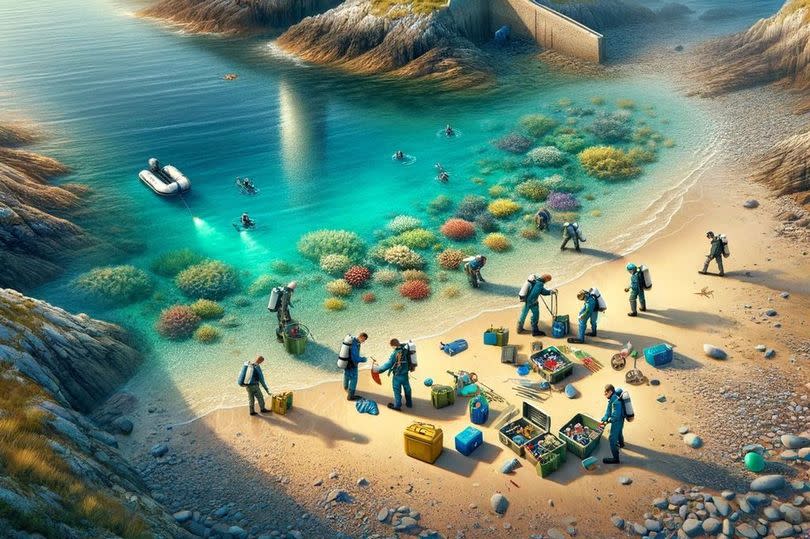
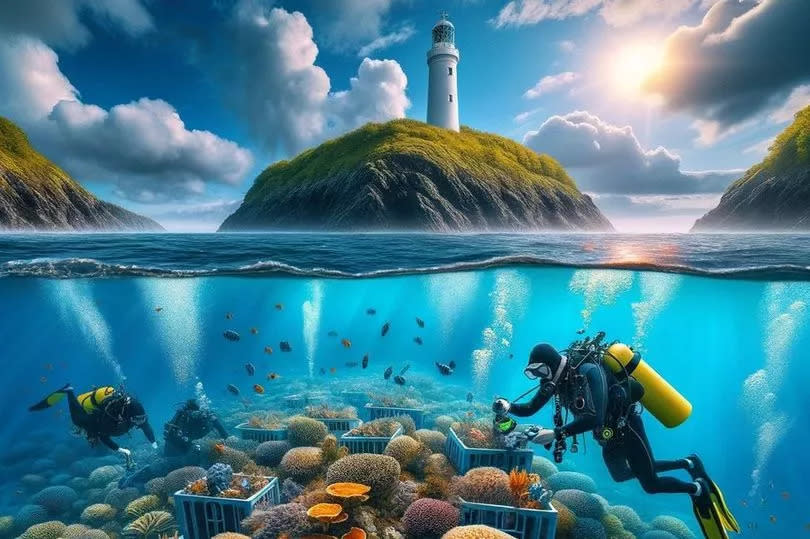
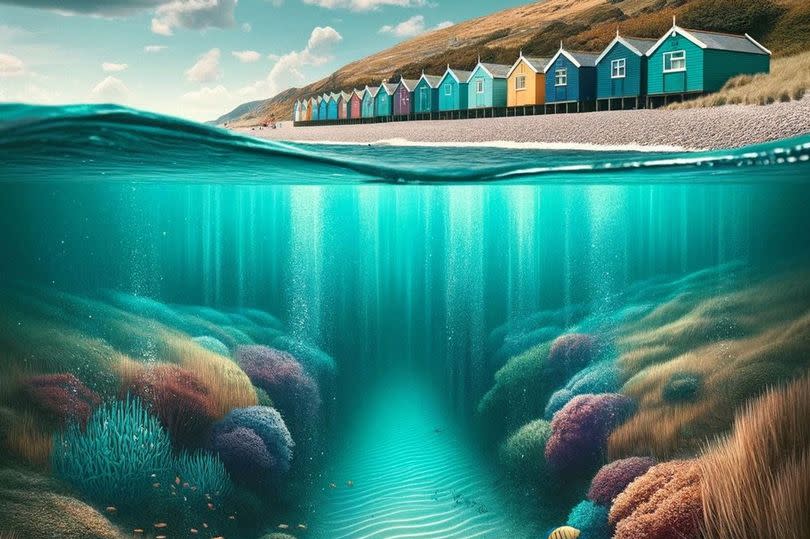
Coral production is taking place in Britain already, albeit in laboratories. Derby University may be 75 miles from the sea but it’s pioneered techniques that enable corals to reproduce in aquariums.
Moreover, the UK has its own coral reefs. Found in deep waters off western Scotland, these cold-water reefs are just as fragile and colourful as their tropical counterparts. They comprise Lophelia pertusa, the only reef-forming coral in British waters, and extend to around 100 sq km.
Some colonies are relatively young – less than five-years-old – suggesting they are still growing. However the bulk of Scotland’s reefs are ancient. The Wildlife Trusts said online: “Lophelia reefs grow very slowly - only between 4mm-25mm per year. As such, the biggest reefs are likely to be thousands of years old with some recorded as growing in iceberg plough marks made during the last ice age.”
Still, Britain’s seas have some way to go before they can ever be regarded as tropical. Over the past 40 years, global sea surface temperatures have risen 0.6C and there is evidence the trend is accelerating. According to OST, current figures show oceans are set to heat up 0.2C globally - and 0.2C-0.3C in Europe - every five years.
This would yield a 2C-3C rise in UK waters by 2074. With late summer sea surface temperatures currently averaging 15.4C in Porthmadog, Gwynedd, local waters would still be short of 20C, the baseline for tropical seas.
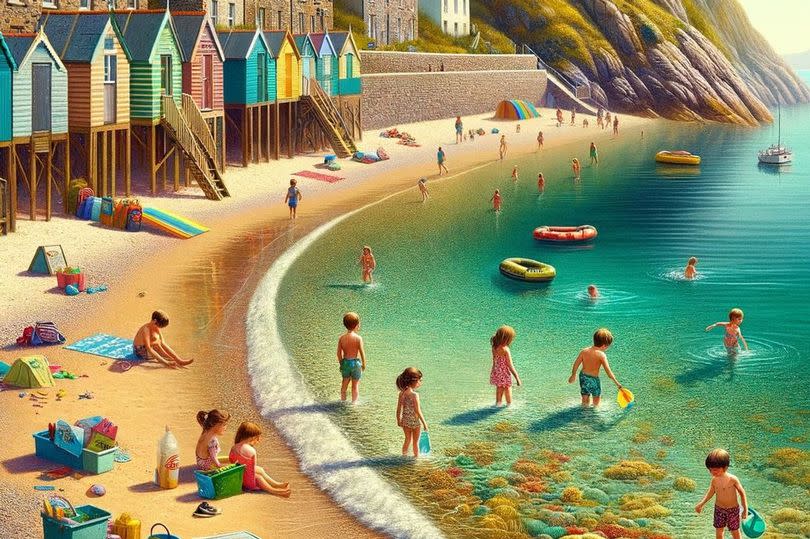
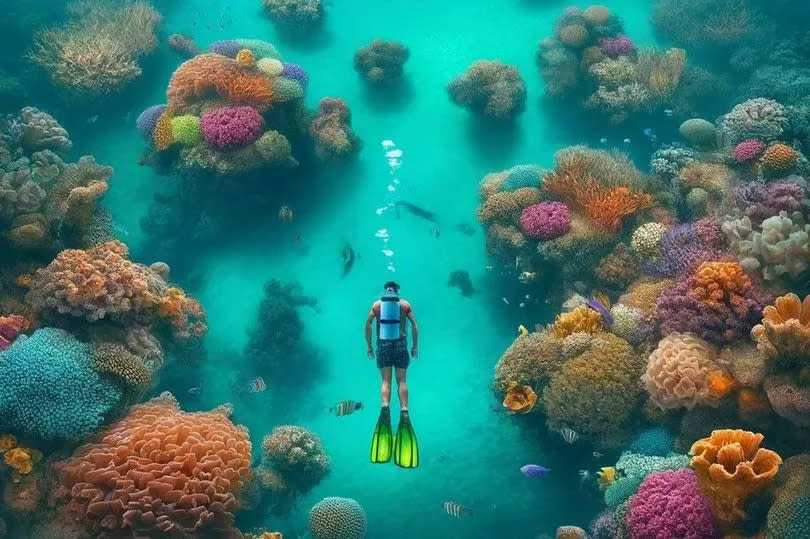
Temperature surges do occur: last year the Met Office reported a marine heatwave that pushed some UK waters up to 5C above average. Moreover, daily monitoring of Menai Strait waters at Anglesey Sea Zoo suggests some coastal waters are inching closer to tropical temperatures.
Speaking to North Wales Live last summer, the zoo’s owner and director, Frankie Hobro, said: “In August into September, we’ve been getting water temperatures of 18C-19C, and occasionally 20C. These are what you would expect to see in the Mediterranean.
“As the sea continues to warm, we’re having to turn on our water tank chillers earlier in the year to cool our native marine species. The chillers used to go on in late May or even June, now they’re being switched on as early as April.” Sign up for the North Wales Live newsletter sent twice daily to your inbox
So the notion of the Welsh coastline becoming nurseries for tropical corals may not be as far-fetched as it sounds. OST’s ChatGPT-generated images of coral farming in Wales are heavily distorted – but they give a glimpse into a distant future that experts believe is not entirely impossible.
Find out what the weather has in store near you

 Yahoo News
Yahoo News 
